Traumatic events make us feel vulnerable and fearful, straining our ability to cope. Once again, in a flash, sick hate, and horrible cowardly acts make our sense of safety evaporate and everything seems to change. Learn practical ways you can deal with such events.
Read MoreAbout 55 years ago Dr. O. T. Binkley, professor of Christian ethics at Southeastern Baptist Theological Seminary, offered 6 marks of an emotionally mature person. These traits are so timeless and important that every leader should strive to cultivate them. Do you possess them?
Read MoreAll executives I talk to want to feel they are in the "better boss" category. The trick is to know better compared to what. And better judged by whom. In my ongoing quest to answer those questions I started looking at what different successful organizations considered a "better boss" was like. A report on a study Google undertook to find out what makes a boss most successful gives us a reliable measure to judge if you are a better boss or not.
Read MoreMany think that leaders are supposed to be demanding, critical, and driven, among other things. The problem is that many of the behaviors exhibited by leaders can easily be classified as bullying behaviors. How do you know if you are being a leader. . . or a glorified bully?
Read MoreFreedom is not only for Americans, but we tend to think of it as our special inheritance, fought for at a great price, and a heritage to be cherished and guarded. We are stewards of this gift. There are many definitions and explanations of freedom.. For me, Freedom includes two very important tenants: First, the principle of free will and second, self-control.
Read MoreBusinesses are collections of people working together. We have to drive change with that in mind. Unless you are able to make strong connections, change will stall and fail.
Today we are exploring what you need in order to build strong healthy connections.
Read MoreMany change efforts fail because people and their emotions are not factored into the equation. Change tends to create or increase anxiety, negativity, and emotional overload. Yet, it can also sharpens focus and purpose. Finding ways to enhance resilience will help reduce emotional burnout.
Today, we are going to examine some of the most common negative psychological and emotional attitudes toward change that bring resistance and emotional turmoil. We will also explore what you can do to help people reduce emotional reactivity and turn it into energy for change.
Read MoreInnovation is not simple, but there are some proven ways in which you can open spaces where being wrong is not a crime, creativity and opportunity can thrive, and where innovation happens as a result. Today I’m sharing with you seven proven secrets that can help you create such spaces.
Read MoreApplying neuroscience to leadership begins with an understanding of self. It includes an understanding of how the brain works--your brain and other's brains. After all, Leadership involves interaction with brains. Understanding, leveraging, and welcoming the diversity of people's minds is critical to your success as a leader.
Read MoreIs there a simple answer to why the failure rate for executives is increasing? The numbers, according to a Harvard Business Review study, point out that 2 out of 5 new CEOs fail in their first 18 months on the job.
Read Moreust how much does technology interferes with your leadership? Today’s smartphones enables you to constantly be in contact with the office and access the Internet or the cloud for needed information on the fly. That's good, right?
"It depends" is the answer.
Constant contact and easy access can often overwhelm the positives and make these devices harmful to the leaders’ businesses life and personal life. Today I'm going to share how constant contact can be harmful and then offer some tips on how to use your smartphone smartly.
Read MoreRecently more than 120 leaders from many places in the USA, Canada, and the world shared with me their perception of what are the 3 main challenges with change. It might surprise you that at the top of the list is The Human Factor. This post shares what I learned.
Read MoreThe worst thing you can do when stuck is to focus on how stuck you are! It's best to use your brain and energy on devising and carrying out a plan to get unstuck. Here are seven proven ways for getting unstuck.
Read MoreWhat is leadership, art or science? Leadership is all about creating conversations. And conversations need to be well crafted. How to do that is the theme of today's post.
Read MoreConversations are at the core of what leaders do. Thoughtful, constructive conversations around questions that matter are the heart of leadership--which makes possible the other business processes needed to create positive results. It’s through conversation that you can discover who cares about what, and who will take responsibility for next steps.
Read More








